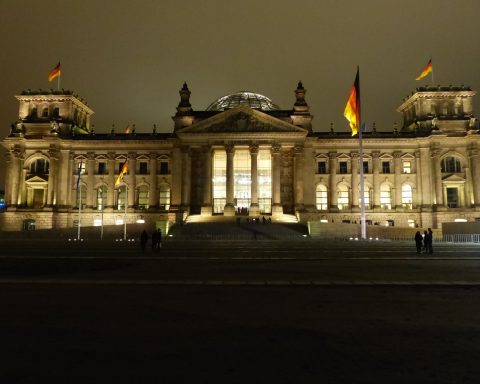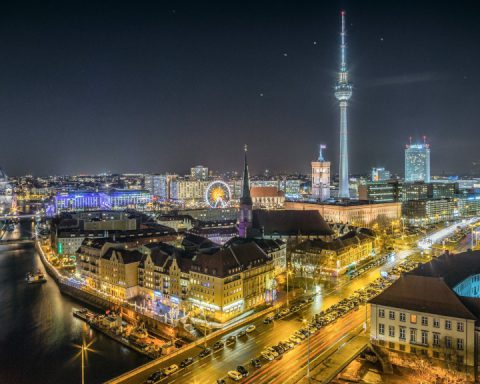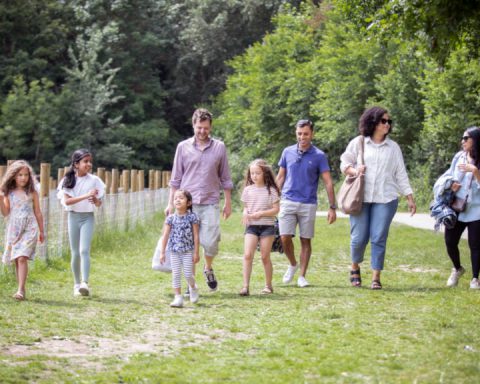Have you ever tried to live in continuous fear for your children? For your future and physical safety? Have you ever tried being a stranger who is rejected everywhere you go, because of who you are, because of your color, religion or opinion – no matter how much you’ve tried to integrate?

Were you ever punished because of a mistake you did not make? Or because someone who shares “nationality” with you committed a crime?
Would you accept having your privacy and individuality violated?
Try to imagine you are this person who bears all those fears. Who is afraid to go out in the street because you live somewhere where everybody hates you and thinks that you are their main problem and enemy.
I do not think that you are even able to imagine it.
This is all I can think about every time I see or hear the news. All these questions rush to my head and concern me. Especially recently, following the news from the city of Chemnitz (East Germany), after a German man was killed by the hands of two foreigners.
The incident was followed by massive angry demonstrations and several attacks by rightist extremists against innocent young men and families. I was very upset with all the attacks, by those angry ones, who chose violence and hate to express their points of view.
However, I tried not to allow this hate to frighten me or shake the inner peace that I have been growing for the last four years living in East Germany (Leipzig), after the horror my family and I lived in Syria.
I tend to think that hate is not a “German thing.” For me, it is more like a trend in our world today. No one can avoid it or run away from it. But of course we can all resist it and stand together against it.
This resistance has been reflected in the movement #WirSindMehr (“we are more”), which has clearly shown that the majority is not proud of the hate and violence, and that they are ready to stand against it with art, music, Love, understanding, and living peacefully together.
It is not difficult to notice there are two conflicting “Germanies” in Germany today, if I may say.
Each is obviously different in beliefs, visions, behaviors, and attitudes. They were meant to be conflicted even without the foreigners or refugee factor.
When I, as a “foreigner,” first came to Germany with all that I thought I knew about it, I was shocked. Shocked by the fact that Germans have so much access to democracy and law, and nevertheless, people here still turn to violence and discrimination.
I could not have imagined that there were people here with such narrow horizons and limited minds. It is disappointing to see them seizing the streets and spreading hate. I always thought that these were the problems of countries dealing with tyranny and dictatorship.
Unfortunately, I discovered that it is a trend, as I said: a direct effect of ignorance and global crisis and polices.
We have experienced a similar situation in Syria, with two conflicting sides and splits in our society.
The results were catastrophic, and the situation now looks like it is not going to end any time soon. We learned the hard way that violence leads only to more violence, and hate leads only to more hate. No point of view can be proven and no right can be claimed or achieved.
I believe that this is an important lesson to be taken into consideration and learned from. Everybody has the right to think, believe and express differently. On the other hand, no one has the right to hate and discriminate.
I, as a human being, refuse crime and do not take the killers’ side. At the same time, I believe that generalization is also a crime that I refuse. We all have the right to be anywhere any time on this planet – without fear, without being refused ourselves.

By Ola Aljari
Ola Aljari is a 32-year-old journalist from Syria who currently works as a freelancer, and is a member of the editorial team of the upcoming “Neu in Leipzig” newspaper (in German). She has interned as a reporter at the European Centre for Press and Media Freedom (ECPMF) in Leipzig, supervised the editorial team at SMART news agency and Hawa SMART radio station, and worked as an editor at Dawdaa newspaper. Her interests include women’s issues, refugees and refugee women, journalism, freedom, the politics and social issues of Syria, motherhood, and a healthy lifestyle. She runs a personal blog, Facebook page, Instagram account, and YouTube channel in Arabic.
Another perspective: “Stop talking right-wing bullshit”
Cover shot: The massive audience in the #WirSindMehr concert in Chemnitz, 3 Sept. 2018. (Photo courtesy of Patrick Bauer)











